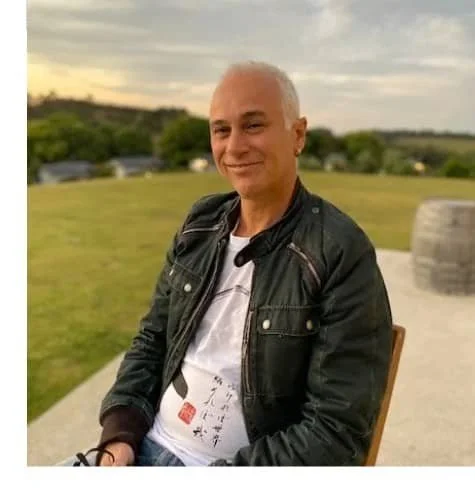Recover from Betrayal—Infidelity Counselling for Couples
A compassionate process to restore trust, safety, and emotional connection, at your pace.
A Choose a time that works for you. Free, confidential, no pressure.
Priya 35, Sydney
Uri is a trusted confidant who guided us with insight and compassion, helping us navigate our relationships with honesty and strength.
From broken promises to Connection and Trust
How Relationship Counselling Helps Rebuild Trust
Safety & Truth
1
A compassionate space where honesty begins the healing—safe enough to face the hurt.
2
Explore the Why
Uncover the causes beneath the betrayal—turn confusion into clarity and even hope.
3
Own & Repair
Take responsibility, become accountable and rebuild trust through consistent, meaningful actions.
4
Move Beyond Blame
Shift from blame to understanding—together, you find hope on the other side.
Establish Boundaries
Establish clear agreements and rituals of safety—an opportunity to rebuild trust and stability.
5
6
Emotional Regulation
Learn tools to soothe hurt and fear—so your heart can calm and healing can begin.
7
Reconnect Intimately
Rediscover closeness through vulnerability and shared meaning, beyond the crisis.
8
Build Resilient Habits
Regular affirmations and check-ins help transform a crisis into a lasting connection.
Your Specialist Guide:
Uri Bookman
Hi, I’m Uri. I’m a Relationship Therapist and Coach, Facilitator, and Emotional Intelligence Trainer. I am a Certified Practising Counsellor (PACFA 30041).
My passion lies in helping individuals and couples break free from old patterns and create thriving relationships—with themselves and with others. Through meaningful inner work, I guide clients toward cultivating deeper connections, aligning with their core values, and living with more fulfilment and authenticity.
With years of experience in therapy, coaching, and facilitation, I’ve supported many people to reclaim balance and purpose. My approach blends warmth, empathy, and a touch of playfulness. I draw on diverse methodologies, including Nonviolent Communication, Process-Oriented Psychology, and shadow work, tailoring every session to meet your unique needs.

Start with a free 20-minute consultation. Begin rebuilding trust at your pace.
Send Me the Free PDF: Own & Repair Toolkit

A Confidential and Safe Space
Infidelity brings shame, anger, and fear. In counselling, you’ll find:
A confidential, judgement-free space.
Neutral facilitation where both partners feel heard.
Support to share even the most difficult truths safely.
Not Ready to Talk Yet? Let’s Stay Connected.
Infidelity healing doesn’t always begin with booking a call—and that’s okay. Take your time. You’re not alone, and when you’re ready, I’ll be here.
In the meantime, I’d like to help you right now with something practical and immediate:
Send me the free PDF: Own & Repair Toolkit: A Roadmap for Healing After Betrayal.
I’ll send it straight to your inbox and personally follow up to see if counselling feels right for you — no pressure.
FAQs
-
A journey through betrayal and repair takes time, but every couple’s path is unique. Some begin to feel relief and clarity after just a few sessions, while deeper rebuilding often requires a structured process of 12 or more. Together we’ll create a tailored plan based on your goals, pace, and readiness — whether that’s a shorter-term focus or a longer commitment to rebuilding trust and intimacy.
-
Yes. Everything you share with me is held in strict confidence. Privacy is essential for healing, and you can expect a safe, non-judgmental space where both partners are respected and supported. The only exceptions to confidentiality are rare situations required by law, which I’ll explain clearly before we begin.
-
Yes. Many couples find online counselling convenient and effective — especially when balancing busy professional and family lives. Sessions are held over secure video platforms, so you can connect from your home or office with the same level of privacy and depth as in-person work.
-
In our first session, I’ll invite you both to share what has brought you here and what you most want to change. We’ll begin mapping out your relationship journey — identifying your shared goals, your pain points, and the obstacles in the way. This session is about creating safety, clarity, and a sense of direction. Many couples leave the first session already feeling a little lighter, with hope that a way forward is possible.
-
Yes — though repair looks different for every couple. Some choose to rebuild and find their relationship becomes even stronger, while others use the process to gain clarity and part with respect. Research and lived experience show that, with the right support, many couples do move through the pain into deeper honesty, trust, and intimacy. There is no single outcome, but there is always hope — whether that means repairing together or finding a healthier way forward.
-
It’s very common for one partner to feel resistant, defensive, or unsure about counselling — especially after betrayal. If that’s the case, you’re not alone. In our work together, I create a safe, structured space where both voices are respected. Even if one partner is hesitant, they often find relief in having someone neutral guide the conversation.
If your partner is reluctant, you might gently approach them with words like:
“I know this is painful for both of us. I’d really value us talking to someone neutral who can help us make sense of this — not to take sides, but to guide us through.”
And if your partner truly isn’t ready, we can begin with individual sessions to support you until they feel more open to joining.
Privacy Policy Terms Contact Form
Phone: +61 425 775 941
Whatsapp: https://wa.me/61425775941
Copyright ©2025 Uri Bookman






